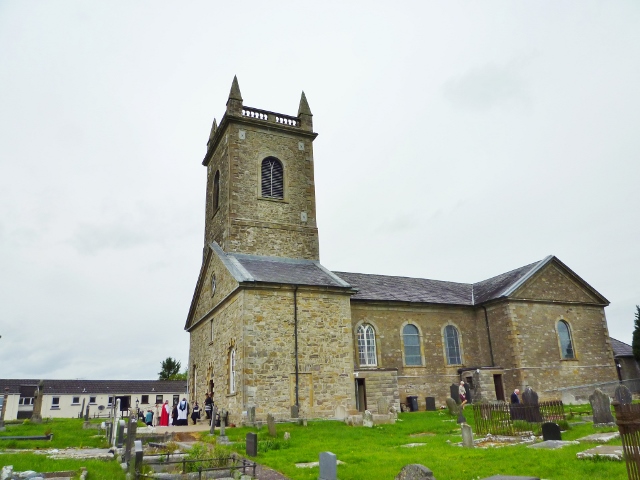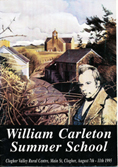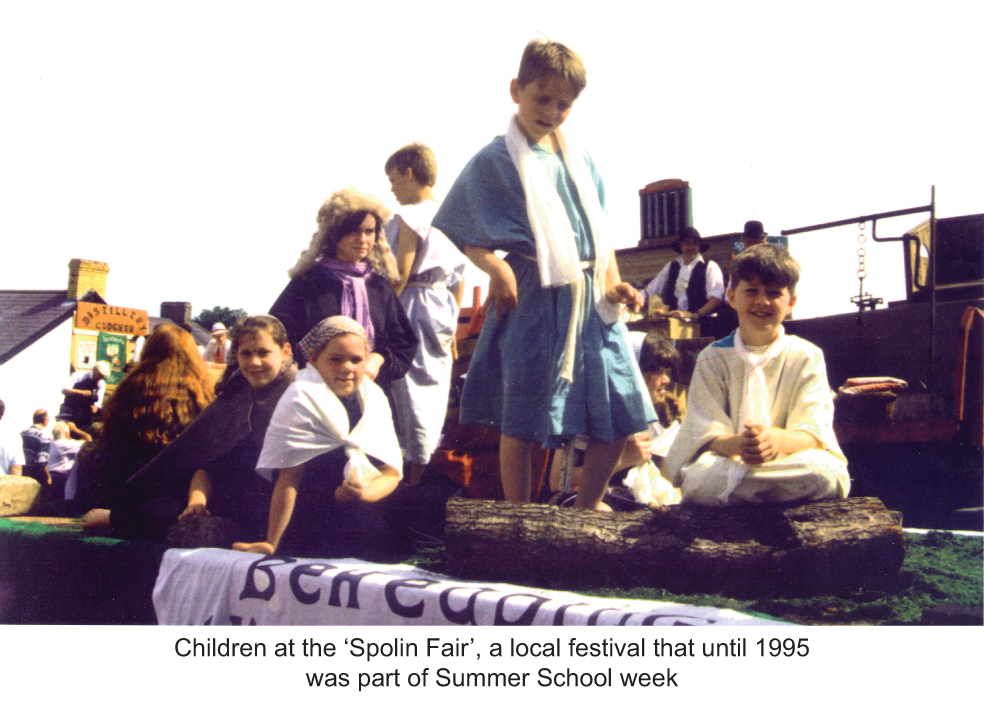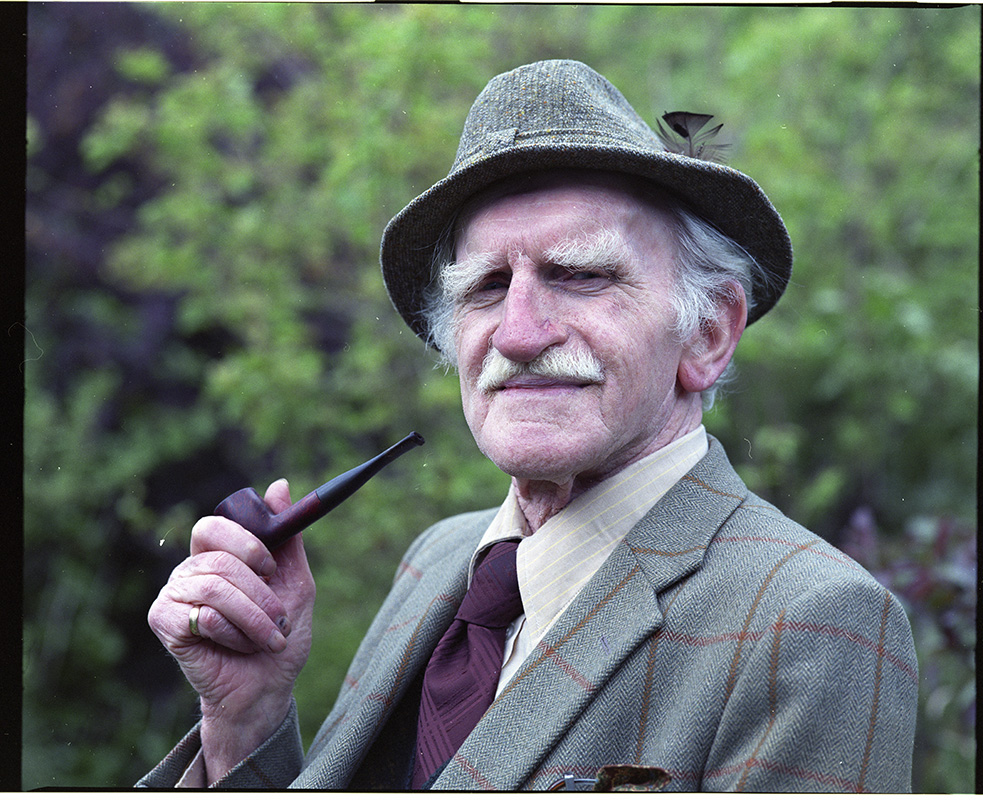Traditional musicians the McKenna family from Clogher helped to recreate the atmosphere of past years at Blaeberry Sunday at St Patrick’s Chair and Well Altadaven. The occasion was the launch of the Society’s digital archive project in August 2023 for which a small grant was received from Mid Ulster Council and whose Chair Cllr Dominic Molloy was in attendance. Video by Mary McGee.
Tag: Clogher
SING SWEET HARP


The Cathedral organist Diane Whittaker will also perform. Our thanks once again to the Select Vestry for the use of this beautiful location as we start the 25th annual William Carleton Summer School. Admission £5.
title
article
RETROSPECTIVE 1995
WILLIAM CARLETON AND HIS TIMES
AII Carleton’s best work is true to that medieval texture of lrish Catholic life, where the same breath that utters a Hail Mary suffices to shoo the chickens off the floor or the cat from the jug of cream.
Patrick Kavanagh (1945)

Following last year’s consideration of Carleton’s place in lreland’s continuing literary tradition, the theme for this year is William Carleton and His Times. This is in part suggested by the fact that 1995, one year after the bicentenary of Carleton’s birth, is the bicentenary of the founding of Maynooth College and of the Orange Order.
Contrary influences these institutions might be but both impinged on Carleton’s life and feature in his writings. lnterestingly, it will be a Maynooth scholar, Professor W J Smyth, who will speak on the Orange Order.
In addition to the more academic contribution, many of lreland’s leading writers will read from work published or in progress. Amongst these, we welcome again one of our patrons, John Montague, who was recently presented with the American lreland Fund literary award for his major contribution to lrish literature.
THE LOCATION
The elegant eighteenth century house, now the Clogher Valley Rural Centre, will again be the venue for the School. This is in Clogher: village in size but city by virtue of the elegant but unpretentious Cathedral of St MacCartan, of 12th century foundation. Clogher is one of a cluster of small towns or villages marking out the Valley. Surrounding them is some of the most gently pastoral country in lreland and, overlooking all, is the wooded height of Knockmany, sacral hill for Carleton pilgrims.
FRINGE EVENTS
During the period of the Summer School, the following events will also be taking place:
. Sketching in the Valley with Margaret Hadden
. Exhibition of Paintings by Sam Craig
. Exhibition of Orange Order memorabilia
. Traditional Music Evenings in local pubs
. The Spolian Fair (Clogher Community Festival – Thursday)

Watch Boost (2016) Full Movie Online Streaming Online and Download
WILLIAM CARLETON AND HIS NEIGHBOURS
WILLIAM CARLETON AND HIS NEIGHBOURS

Photo Bobby Hanvey via Burns Library Boston College, Creative Commons Licence
by Sam Hanna Bell
There is a tradition that the people of Carleton’s Country, the mountainous district between south Tyrone and Monaghan, were descendants of the Firbolgs or Bag-Carriers, driven there by their Celtic conquerors. In this district, in the townland of Prillisk, between Clogher and Knockmany, William Carleton was born in 1794. It can happen, when discussing a writer and his work, that little is added to our evaluation to mention when and where he was born. We see him only faintly, if at all, a journeyman labouring behind his heroes, his heroines, his villains. But William Carleton of Prillisk in the County Tyrone steps out from the pages of his own tales. He is Jemmy McEvoy the Poor Scholar travelling hopefully towards Maynooth, he is Denis O’Shaüghnessy hurrying homeward from Maynooth, to wed “the cream of his affections”, Susy Connor, he is Shane Fadh, who before the eyes of his sweetheart, could out-dance, out-throw, out-speed all his rivals in the glades of Althadhawan Wood.
From this vanished forest Carleton leads .out his neighbours, remembering and setting down every quirk and turn of their steps. He is the inexhaustibly well-informed legend-and-customs-officer of the baggage of sorrow and joy the Bag-carriers humped through their lives. He was born among their cabins and travelled with them to their christenings and funerals, their weddings and wakes, their places of merriment and of pilgrimage. And, above all, his father was a brimming well of folk-tale and legend and Carleton drew prodigally on him. In later years he could boast that neither Petrie nor Ferguson nor O’Donovan nor any other antiquary had anything to teach the writer who had spent his childhood among the neighbours who tumble from the pages of his books. Throughout his stories there are many examples of Carleton’s indebtedness to the tradition that he learnt around hearthstones in the Clogher Valley.
A few years ago there appeared in Béaloideas*, the Journal of the Folklore of Ireland Society, a group of Tyrone folktales contributed by the late J. B. Arthurs of Queen’s University. One of these stories, Jack and the Black Horse, was taken down in 1908 from a Tyrone storyteller, Owen Bradley of Carrickmore.* In the course of the life-and-death pursuit in this story the Black Horse (a bewitched Prince) advises the hero: ” ‘Jack,’ he says, ‘look in my right ear now and see do you see anything in it.’ ‘I see a drop of water in it,’ says Jack. ‘Throw it behind you,’ says the Black Horse, ‘ and wish for an ocean behind you and a plain road before you.’
*Béaloideas, 19 (1949), 53-63.watch full movie A Cure for Wellness 2017 online
(Reproduced from Summer School Handbook 2004)